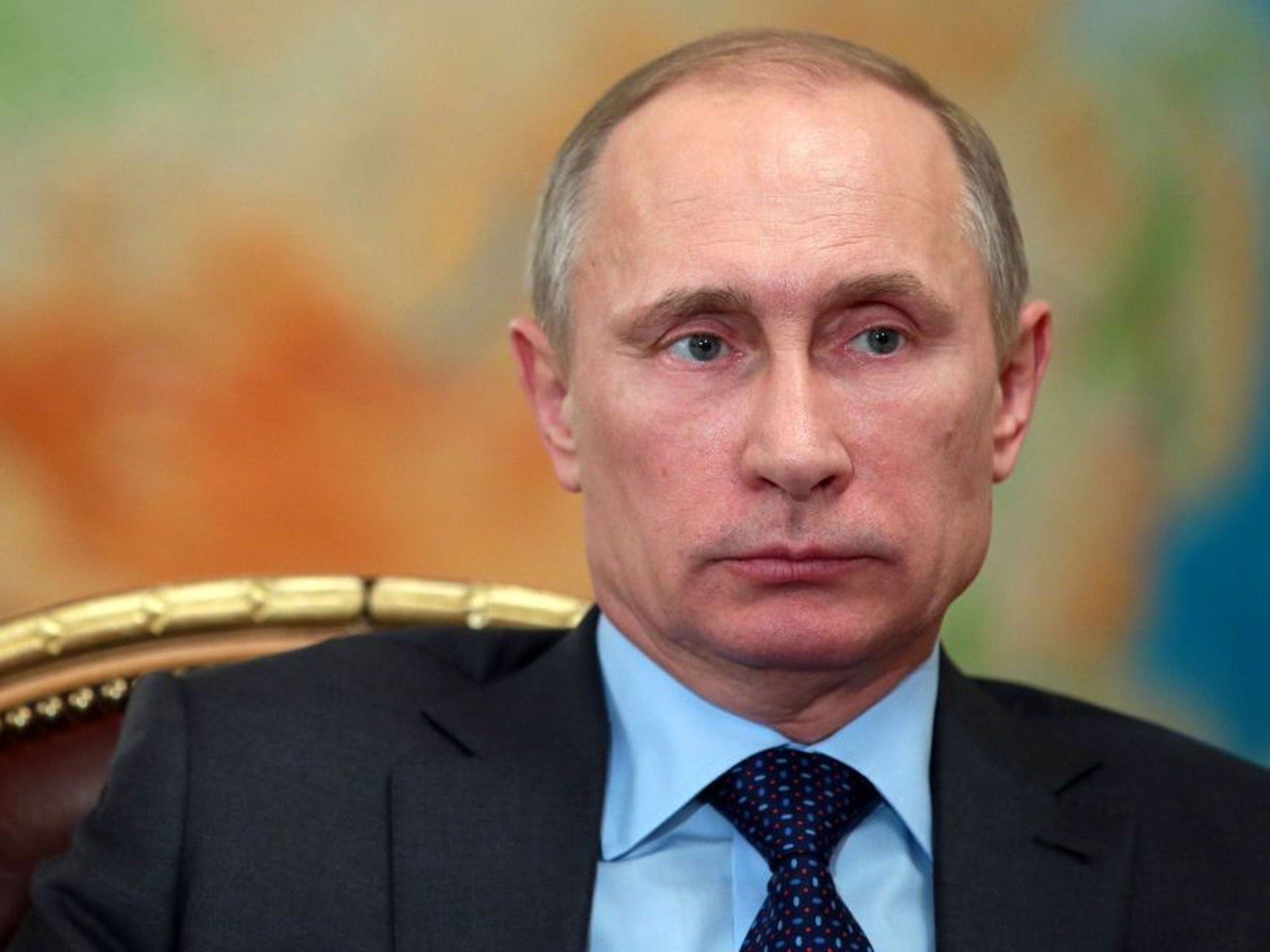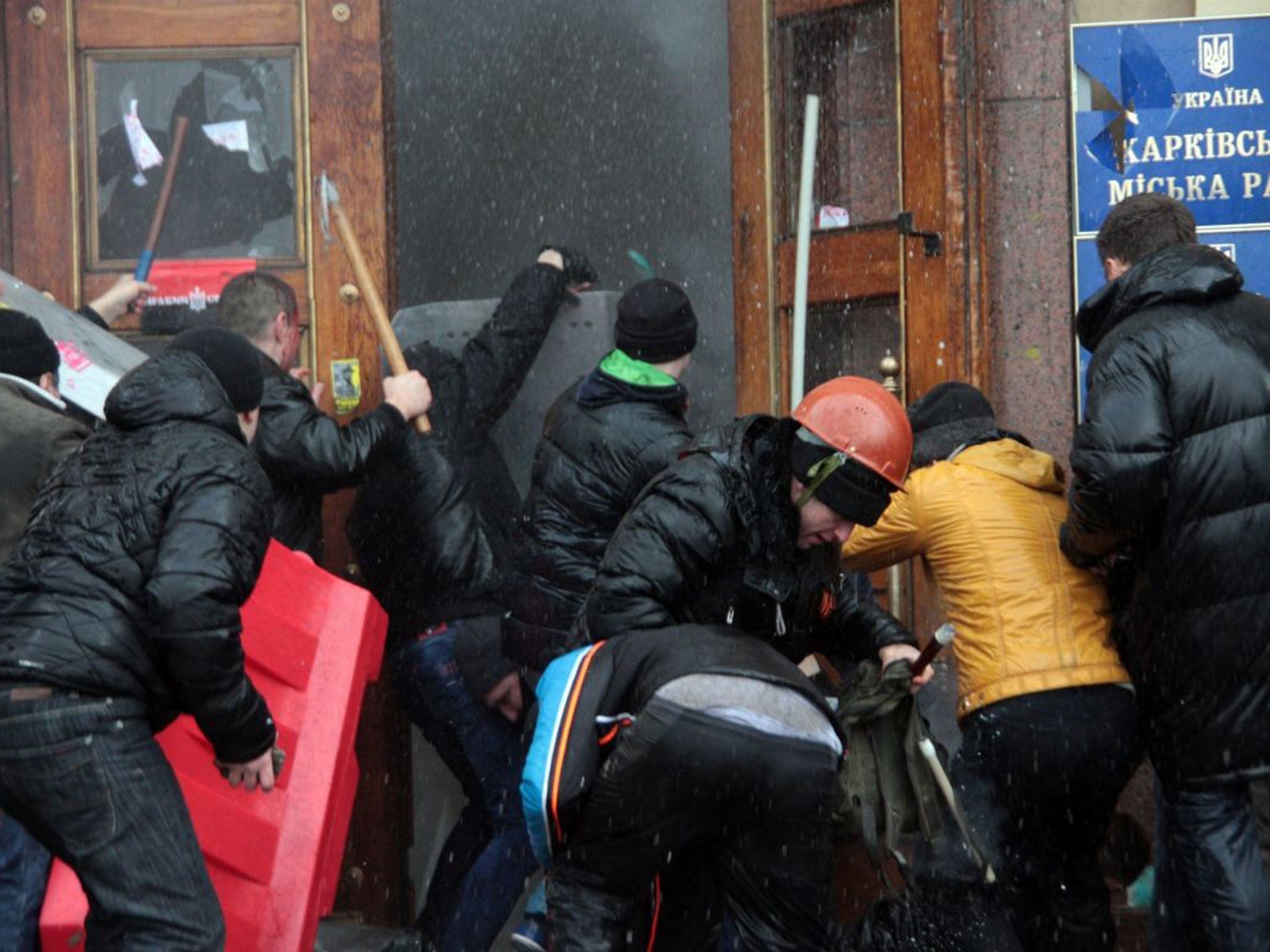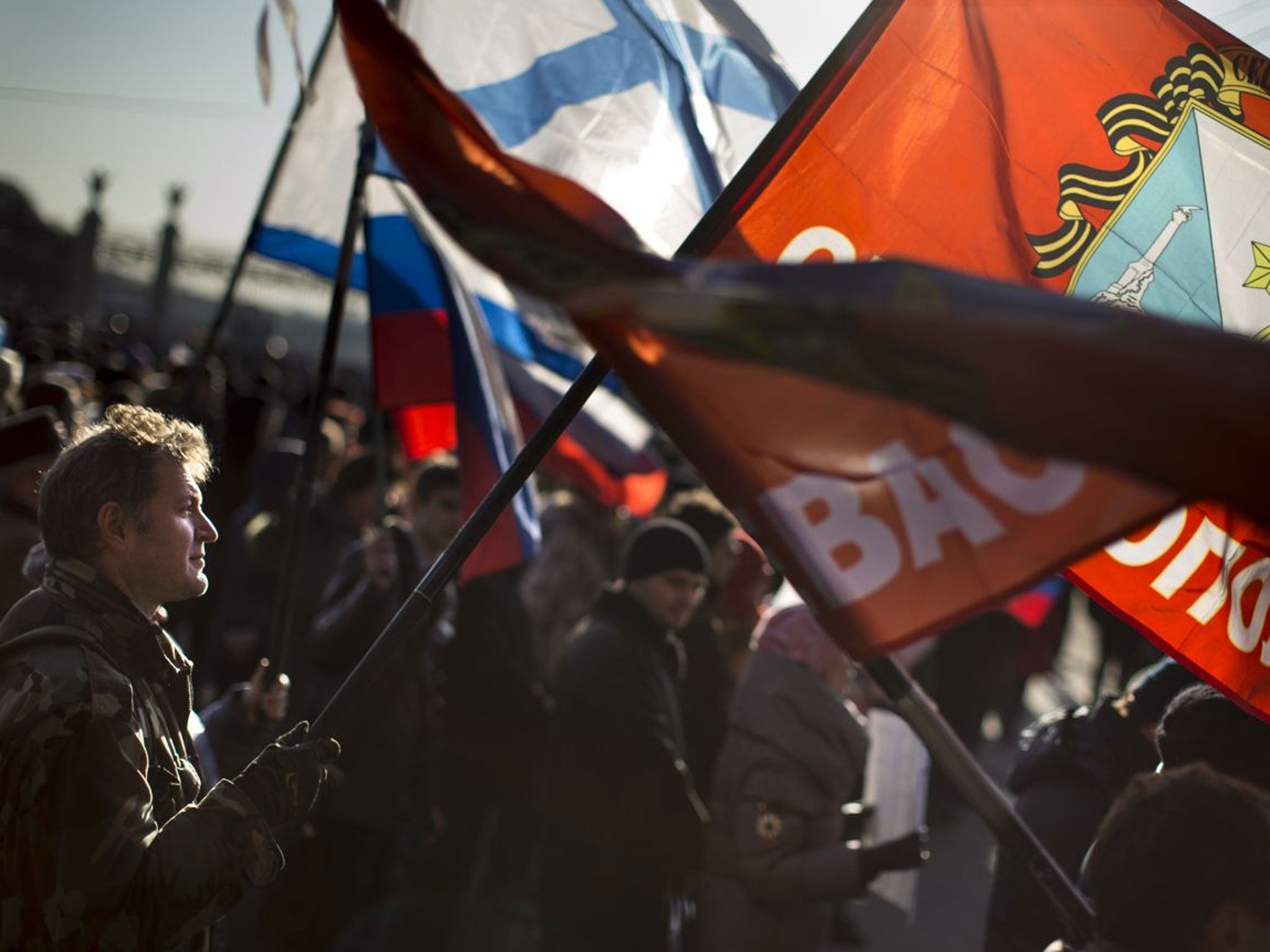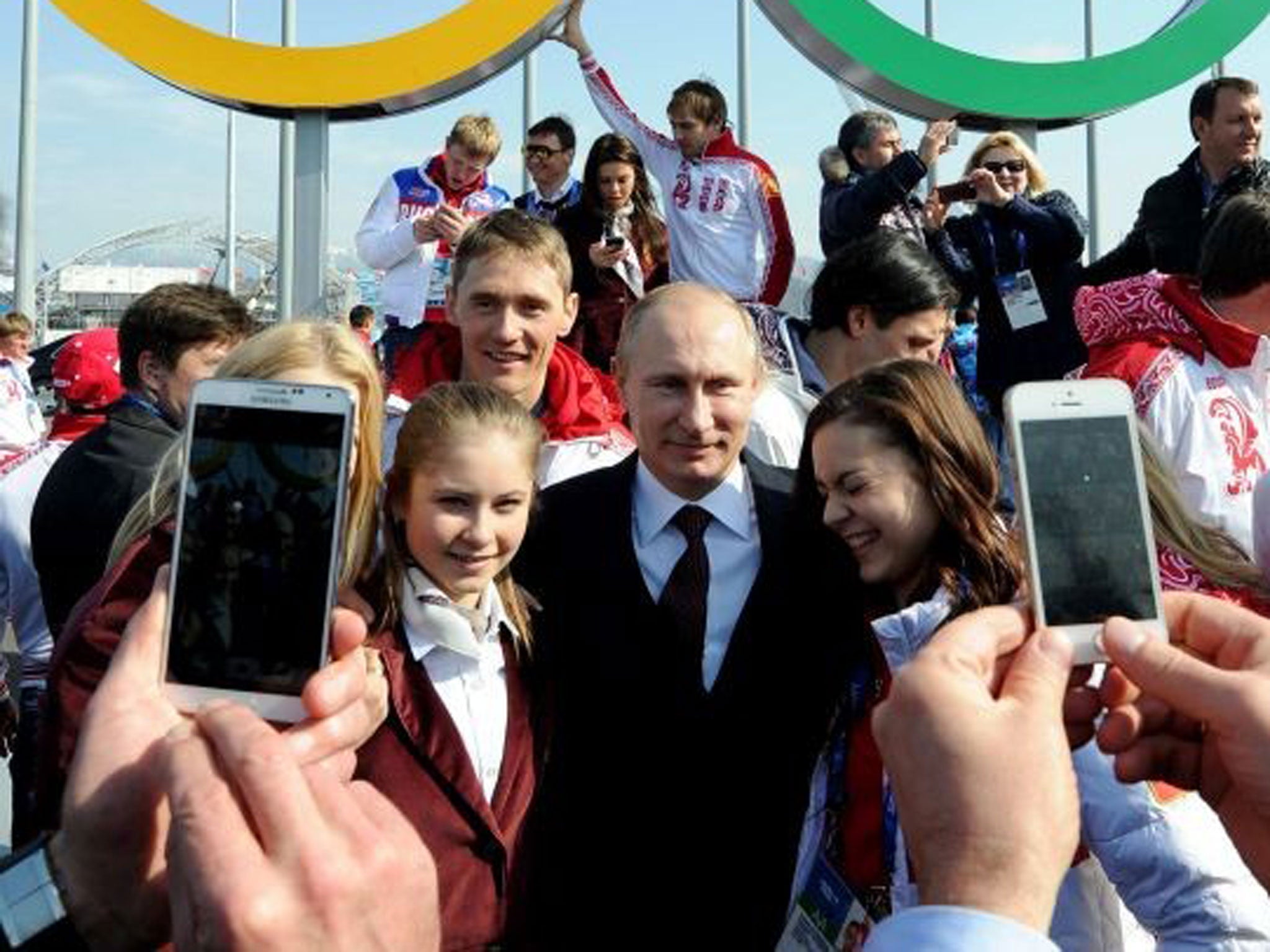Ukraine crisis: So, how far will President Putin go to keep his hands on Crimea?
The Russian leader is taking a big gamble in his aggression towards his neighbour

Your support helps us to tell the story
From reproductive rights to climate change to Big Tech, The Independent is on the ground when the story is developing. Whether it's investigating the financials of Elon Musk's pro-Trump PAC or producing our latest documentary, 'The A Word', which shines a light on the American women fighting for reproductive rights, we know how important it is to parse out the facts from the messaging.
At such a critical moment in US history, we need reporters on the ground. Your donation allows us to keep sending journalists to speak to both sides of the story.
The Independent is trusted by Americans across the entire political spectrum. And unlike many other quality news outlets, we choose not to lock Americans out of our reporting and analysis with paywalls. We believe quality journalism should be available to everyone, paid for by those who can afford it.
Your support makes all the difference.From hunting tigers and polar bears with a tranquilliser rifle to sparring with his judo coach or flying a fighter jet, Vladimir Putin is known for his macho exploits rather than diplomacy. Images of the Russian leader hunting, fishing, swimming and in the saddle – often shirtless – show how the former KGB chief is keen to demonstrate his toughness.
It is an image which has played well with those who see him as a symbol of Russian power and dominance. But to his opponents, he is a dictator – an enemy of democracy. And the 63-year-old’s tough-guy persona has been knocked in recent years, after rumours began to circulate in 2011 that he was having regular botox treatments and cosmetic surgery in an effort to stave off old age.
The Sochi Winter Olympics was supposed to show a new, perhaps softer side of Russian power and its leader. But within days of the closing ceremony, the crisis in the Ukraine has undone all the good work that went before.
Mr Putin is nothing if not controversial, and has taken an increasingly hostile approach against the old enemy – the West. Aggression is a personal trait. His personal website lists his sporting achievements such as being a judo expert and having a black belt in karate. As a boy, he became “deeply interested in martial arts, their special philosophy, culture, relations with the opponent and the rules of combat”.
Mr Putin is keen to portray himself as a man of the people rather than career spy turned Russian leader. “I come from an ordinary family, and this is how I lived for a long time, nearly my whole life. I lived as an average, normal person and I have always maintained that connection.”
The Russian President was a “troublemaker” at school, but a childhood ambition to spy for his country led to him joining the ranks of the KGB, where he would be posted to East Germany during a 16-year career in which he rose to the rank of lieutenant colonel by the time he left in 1991. On his return to Russia, he began to get involved in politics, and less than a decade later was in charge of the country – taking over from Boris Yeltsin as President in 1999. And he has, despite protests, been in charge ever since, whether as Prime Minister or President.

Mr Putin hankers after the past, and has described the collapse of the Soviet Union in 1991 as the “greatest geopolitical catastrophe of the 20th century”. The loss of Ukraine is a powerful symbol of what was lost – and what Mr Putin wants to regain.
He reportedly threatened to “dismember” Ukraine and annex Crimea during a Nato summit in 2008, in response to suggestions that it wanted to join the Western military alliance. Mr Putin was said to have told US Presid ent George W Bush: “Ukraine is not even a state! What is Ukraine? Part of its territory is Eastern Europe, but part of it – a considerable part – was gifted by us!”
Later that same year, Mr Putin sent Russian forces, some of which were based in Crimea, into Georgia to ensure that the Russian-friendly provinces of South Ossetia and Abkhazia were free from Georgian control. With the intense steely-eyed glare which has become his trademark, along with a reputation for letting his actions speak louder than his words, Mr Putin radiates determination and menace in equal measure.

He has summed up his approach to life as: “If I do something, I try to see it through to its completion, or at least try to ensure that it brings the maximum result.”
And Russia’s actions, in Georgia and now Ukraine, are in the context of a harder stance being taken against the West. During a television interview in 2011, Mr Putin dismissed suggestions that some nations saw Russia as a second-tier world power, saying: “They are mistaken. Russia is not a country to be pushed around.”
And in December last year, during his annual state of the nation address, he commented: “No one should entertain any illusions about achieving military superiority over Russia; we will never allow it.”

His ambition of creating a Eurasian Union between Russia and surrounding countries is an attempt to regain the power of the former Soviet Union. But it needs Ukraine, the second biggest country in Europe, to work. The closer Ukraine gets to Europe, the less likely this is to happen.
The military move against Ukraine is his biggest gamble yet. And like a man playing for high stakes, Mr Putin has remained quiet. But it remains to be seen whether it will pay off. There is much at stake, with Mr Putin’s popularity slipping at home and growing signs of unrest in Russia.
Yet even as the show of Russian military might continues, expect smiles and handshakes when the Russian leader turns respectable statesman during the opening of the Paralympic Winter Games at Sochi this Friday. But the reception he gets from world leaders when he hosts the G8 summit later this year will depend on how far he is prepared to go in his ambition to bring Crimea back under Russian control.
Join our commenting forum
Join thought-provoking conversations, follow other Independent readers and see their replies
Comments